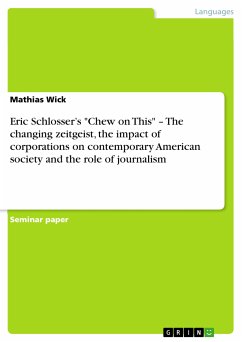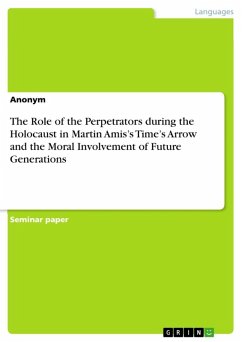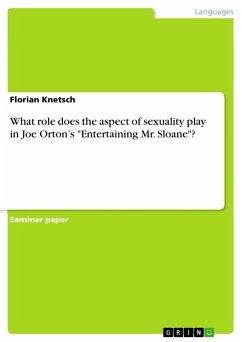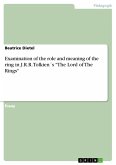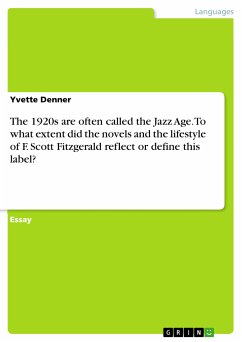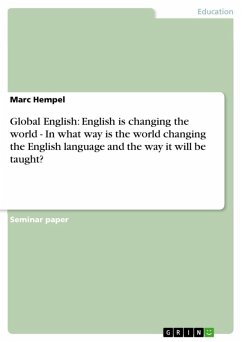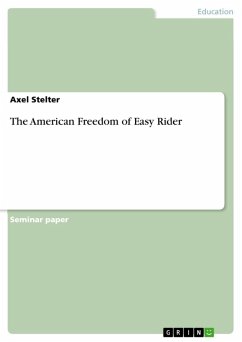Seminar paper from the year 2008 in the subject Didactics for the subject English - Literature, Works, grade: 1,3, University of Potsdam, language: English, abstract: “I’m not trying to write agitprop, telling people exactly what to think. I’m just trying to make them think”, says Eric Schlosser about his aim and style of writing, which he intends to be emotionally calm, straightforward and deliberately simple. Part hereof is moreover a modest authorial presence in the text – most of the time going without a narrative –, the very rare use of quotations and the avoidance of polemics, all of this aiming at a reading experience where facts and evidences are recognized before style and literary flourishes. Most of this comes, as Schlosser stresses himself, from reporter John McPhee, whom he praises as “a master craftsman with integrity in every detail” and who was his teacher when studying at Princeton University. Even though Schlosser himself, who worked as a script reader and story editor before becoming a full-time journalist for The Atlantic Monthly and the Rolling Stone magazine, points towards the argument put forward by Barbara Fairchild, editor of Bon Appétit magazine, that “there are two things about American [book] culture today: It's all in the timing and it's all in the title", he is seen in line with America’s most influential contemporary non-fiction writers and often – due to his investigations into the meatpacking industry – as a modern Upton Sinclair. His 2006 book Chew on This is a variation of the very successful 2001 Fast Food Nation, intending to inform especially adolescents.
